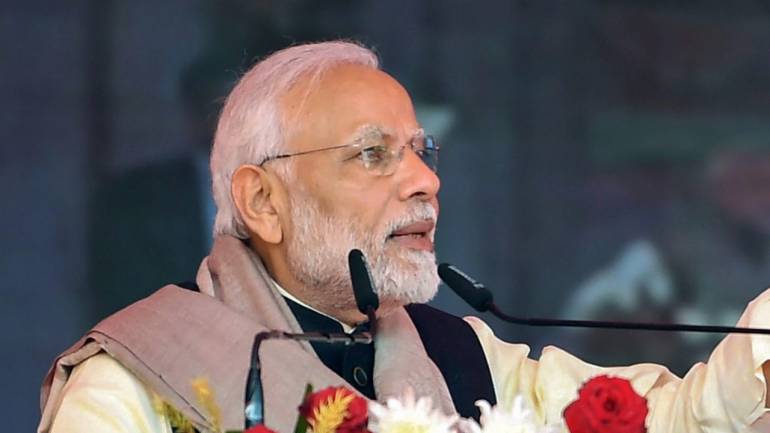
By Mohan Kumar (19 April 2020) – Never has the international community been so divided and so paralysed in the face of common threats to humanity. How did we get here? More importantly, where do we go from here?
We have been facing a “synchronised global crisis” for some time now. The crisis has entailed great power rivalry, conflict, terrorism, trade wars, climate change and now a pandemic: all occurring in synchronised fashion. In an ideal world, this level and scale of crisis might have elicited coordination and cooperation among all the stakeholders. Instead, what we are witnessing today is not just an absence of global cooperation but worse, finger pointing and blame game among major powers.
The UN Security Council has been in limbo for the last few years now. And given the state of relations between the US on the one hand and Russia/China on the other, the prospect of this forum doing anything meaningful is diminishing by the day. If the UNSC cannot get its act on Yemen, Libya and Afghanistan, then what hope for this conflict-ridden world?
The World Trade Organization (WTO), whose mandate it is to provide a predictable framework for international trade at a time like this, is itself facing a serious crisis. Powerful members of the WTO have to take the blame for bringing this organisation to a grinding halt. As for Climate change, the less said the better. There could not be a more existential threat to humanity, yet countries have behaved in a “devil take the hindmost” fashion that beggars belief.
It is against the above backdrop that the coronavirus hit the world, beginning with China. As outlined above, the timing could not have been worse. Already, the global institutions set up in the aftermath of World War II had atrophied to such an extent as to become dysfunctional. Add to that a high degree of mistrust between the great powers for a variety of reasons.
When the deadly virus happened, China committed the cardinal sin of trying to cover up. Authoritarian societies have both advantages and disadvantages. The advantage is ramming through measures and seeking compliance from its population. The disadvantages are lack of transparency, arguable accountability and absence of a vigilant press. China appears to have taken a huge gamble by seeking to cover up the truth in the beginning, hoping that the strong state can then beat this virus through draconian measures. It may have overlooked the fact that the coronavirus is an equal opportunity infector and does not spare anyone. If in late December or even early January, China had acknowledged the problem and sought international cooperation, things might have been different. But then, trust and confidence between major powers was so low that China may have been more keen on saving face and in asserting its great power status than in seeking outside help.
As often happens in such cases, the initial cover-up led to subsequent lies and subterfuge by the Chinese Communist Party. One of the most egregious things that China did was to either mislead the World Health Organization or worse, bulldoze the organisation into asserting in January that there was no evidence of human transmission by this dreaded virus. If this complicity is established, the WHO stands enormously diminished as an organisation whose fundamental objective (Article 1 of the WHO Constitution) is the “attainment by all peoples of the highest possible level of health”.
Then, there is the “small” matter of how or where this virus originated. Against massive evidence, China refuses to accept even to this day that the virus began in a wet market in Wuhan. Instead, it has consistently sought to change the narrative by floating outlandish theories that the virus may have had an American origin! China is currently desperate to prove that as a Great Power, it has brought the issue under control, even while the West is floundering around.
There is now little doubt that China will use this global crisis to gain geo-strategic advantage. Take the simple case of masks, of which there is a global shortage. China already produced 50 percent of world supply and is now all set to ramp up production. France, a country battling the coronavirus, for instance depends 100 per cent on China for supply of masks. Italy presents an interesting example of how China plays the strategic game. Just as the EU was dragging its feet in meeting Italy’s request, China rushed supplies and medical teams earning Italy’s gratitude. Chinese assistance, whether it is for Italy/France or indeed for Africa, is nevertheless based on quid pro quo rather than any altruism.
The world got here because the liberal international order was showing signs of collapse even before the coronavirus hit us. The fact that there was no global leadership at this juncture led to geo-strategic paralysis. Based on evidence so far, China will try to assume the mantle of global leadership but it is unlikely to be smooth going. Indeed, a leadership struggle in China is not inconceivable. Meanwhile, expect more churn, more disorder and more jostling for strategic influence by major powers. Can India, along with others like Japan, try and foster multilateral cooperation using the G-20 framework? It will be a long haul and success by no means guaranteed, but may be worth a try.
(Dr Mohan Kumar is a former Indian Foreign Service officer and retired as the Indian Ambassador to France). This article first appeared in The Hindustan Times.


